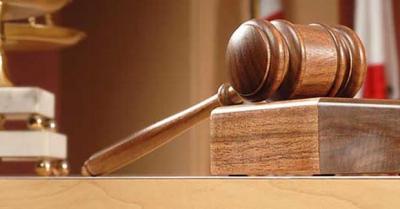Un vendeur d’ordinateurs, poursuivi et trouvé coupable pour avoir été en possession d’objets volés (Possession of stolen Properties — PSP) a vu le verdict l’ayant trouvé coupable et la sentence être annulée en appel. La juge Nirmala Devat et le juge Prithiviraj Fekna font remarquer dans le jugement qu’ils ont rendu il y a quelques jours, que l’avocat ayant paru pour l’État lors de cet appel n’a pas soutenu le jugement de la magistrate de la cour de première instance.
« We must point out that counsel appearing for the respondent did not support
the judgment of the learned Magistrate on the ground that she misdirected herself in law and on the ground that she failed to take into account the cross-examination of the main witness for the prosecution as evidence to justify possession. We are of the opinion that counsel for the respondent was right », écrivent les juges dans leurs conclusions.
L’appelant, qui était jugé en cour criminelle intermédiaire, avait plaidé non coupable de l’accusation logée contre lui. Trouvé coupable, il a obtenu la liberté conditionnelle contre le versement d’une caution de Rs 5 000 assortie à une obligation de bien se comporter pendant une période d’une année.
Les faits de cette affaire se résument à ce qui suit. Dans sa déposition à la barre lors du procès, le témoin principal, qui était familier avec l’accusé, de qui il avait l’habitude d’acheter des pièces de rechange pour ordinateurs, a indiqué qu’il devait à l’appelant une somme de Rs 26 000. Il (le témoin) a effectué un vol en septembre 2008 au Matikola Complex de Vacoas, lors duquel il avait emporté sept ordinateurs. Il en a remis un à l’appelant, dans l’espoir que ce dernier allait déduire une somme de Rs 10 000 du montant que le témoin lui devait. Toutefois, lorsque l’appelant lui a demandé à qui l’appareil appartenait, il a dit que c’était à lui.
La magistrate s’est contentée de cette version pour trouver l’appelant coupable. Dans son arrêt, elle a écrit ce qui suit : « It has been established that accused party was in possession of the stolen computer given to him by the main witness for the prosecution whether he knew of the tainted origin or not. It was important for the accused to depose under solemn affirmation to establish the circumstances in which he came in possession of the computer. On that score, I am of the view that the accused failed to give evidence on this issue to justify his possession. I am of the view that he bore that evidential burden which he did not discharge in the present matter. It was important for him to depose so that I may assess whether it was a bona fide purchase and the circumstances of the purchase. It was then that the evidence of the value of the computer would have been material in that respect to determine bad faith of the accused party or not. »
L’appelant a soumis quatre raisons pour lesquelles il contestait le verdict de la magistrate. Après avoir analysé le jugement de la magistrate et les raisons d’appel soumises, les jugent citent d’emblée l’article 10 (7) de la Constitution, qui stipule que « No person who is tried for a criminal offence shall be compelled to give
evidence at the trial. » Ils pensent qu’il ne fait aucun doute que la tâche de justifier la possession d’un objet volé sans aucune justification incombe à la partie accusée.
De plus, les juges disent qu’il est « trite law that his unsworn statement given to the police is evidence of what he told that officer ; but he may argue, among other things, that the version given in his statement is more convincing than the sworn version put forward by the prosecution witnesses. An accused party may be given the benefit of the doubt should the court accept that argument. The same would apply to a statement made by the accused. »
L’appelant a retenu les services de Mes D. Ramful, avocat, et S. Bundhun-Cheetoo, avouée.
PSP—VERDICT CASSÉ EN APPEL: L’appelant est acquitté parce que la loi a été mal appliquée
- Publicité -
EN CONTINU ↻



